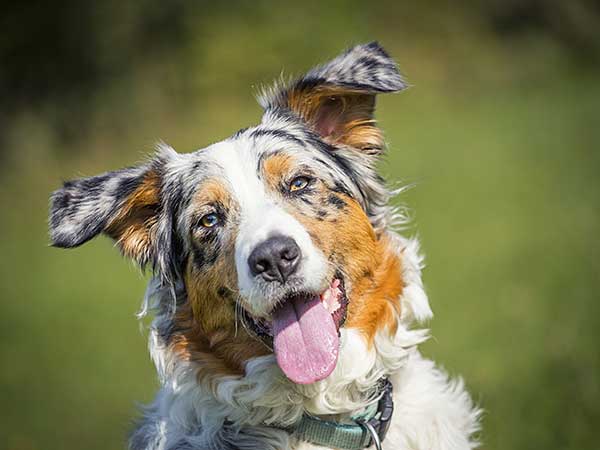
Dealing With A Dog Ear Infection Of The Outer Ear (Otitis Externa)
A dog ear infection is one of the most common complaints among dog owners. As with humans, a dog's ears are very sensitive and are particularly vulnerable to bacterial and fungal infection. Infections that occur in the outer ear are called otitis externa while an infection in the inner or middle ear are otitis media. While they can be uncomfortable, most infections are easily treatable. If left untreated they can become chronic and lead to more serious damage.
Though ear issues are more common in breeds with long, floppy or hairy ears such as Cocker Spaniels or Old English Sheepdogs, they can occur in any breed. They can happen easily in Australian Shepherds since they tend to spend a great deal of their time outdoors, where they can come in contact with any number of foreign objects as well as contaminants such as bacteria and fungi.
When the glands of the ear canal become inflamed and begin to produce excessive wax, this can lead to ear infection in dogs. Over time, the inner and outer skin will produce excess fibrous tissues, causing a narrowing of the ear canal. This can be painful and irritating to the dog, resulting in head tilting and shaking, scratching at the ear and a bad odor emanating from the ears.

Jennewein Photo / stock.adobe.com
While the immediate symptoms of a dog ear infection are not serious, if the infection is not properly treated it can lead to more serious symptoms including hearing loss. For this reason, it is crucial to get your dog to the vet and have him examined at the first signs of any ear trouble. Your vet will use an otoscope to get a close look at the ear canal, allowing him to determine if there are any foreign objects or excess wax plugging the canal or if the eardrum has been damaged.
Determining The Cause Of An Outer Dog Ear Infection
If there is no visible sign of an irritant, the vet will also take scrapings from the ear flap and perform skin biopsies to determine the presence of parasites or autoimmune disease. It is extremely important to diagnose any underlying cause of ear infection in dogs so that it can be properly treated, otherwise the infection can become chronic and the damage more severe. Once your vet determines the cause, he can recommend a proper course of treatment.
If a foreign object or excess of wax is found it can be carefully removed and the external ear thoroughly cleansed. Otherwise, the most common treatment for dog ear infection in the outer ear is the use of a topical medication. Topical medications can be antiseptic, antibacterial, corticosteroid or anti-yeast and are usually applied once a day for seven days. There are many available brands, such as Zymox, and your vet can recommend the most effective one to use.
In the most severe cases of otitis externa and otitis media, caused by infectious organisms, it may be necessary to use an oral antibiotic or antifungal. In any case, repeated examinations of the ear discharge will be required to control any underlying disease. Regular, careful cleansing of the ears can help to prevent recurrence. In most cases, external infection will clear up within three to four weeks.
Unfortunately, your dog's ears are vulnerable to many irritants, which can lead to recurrent and painful infections. If your dog is exhibiting any of the symptoms of an ear infection you should get him to the vet as quickly as possible for diagnosis and treatment. It's up to you to protect his sensitive ears and help keep outer and inner ear infections at bay.
Have Dog Training Questions?
Check out these introductory dog training videos...
I want my dog to stop being aggressive.
I want some help training my new puppy.
I want my dog to stop barking at everything.
Get Australian Shepherd Info, Website Updates, Special Offers, and Cartoons...
FREE GIFT
You'll also receive a free copy of the ebook
My Everyday Dog Training Tools
by professional dog trainer Daniel Abdelnoor, "Doggy Dan"









